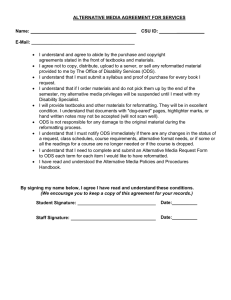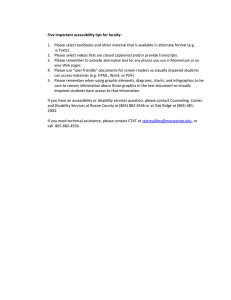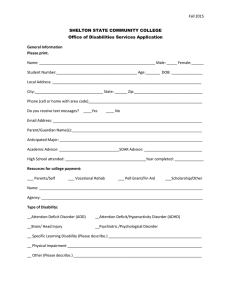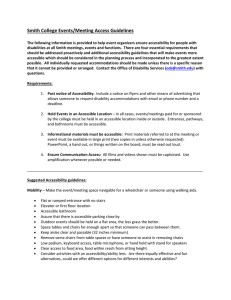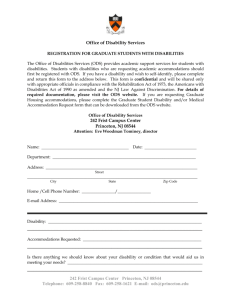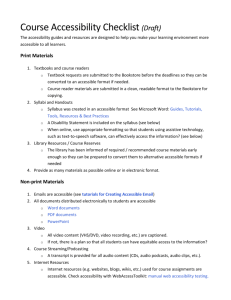Statement of Universal Accessibility:
advertisement
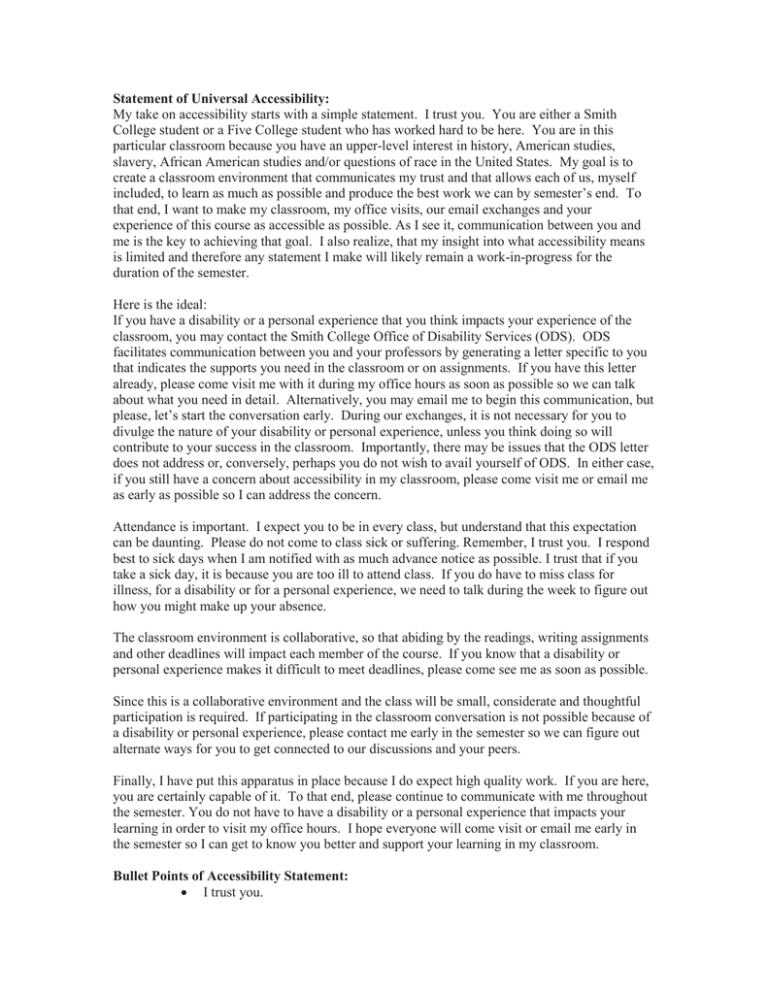
Statement of Universal Accessibility: My take on accessibility starts with a simple statement. I trust you. You are either a Smith College student or a Five College student who has worked hard to be here. You are in this particular classroom because you have an upper-level interest in history, American studies, slavery, African American studies and/or questions of race in the United States. My goal is to create a classroom environment that communicates my trust and that allows each of us, myself included, to learn as much as possible and produce the best work we can by semester’s end. To that end, I want to make my classroom, my office visits, our email exchanges and your experience of this course as accessible as possible. As I see it, communication between you and me is the key to achieving that goal. I also realize, that my insight into what accessibility means is limited and therefore any statement I make will likely remain a work-in-progress for the duration of the semester. Here is the ideal: If you have a disability or a personal experience that you think impacts your experience of the classroom, you may contact the Smith College Office of Disability Services (ODS). ODS facilitates communication between you and your professors by generating a letter specific to you that indicates the supports you need in the classroom or on assignments. If you have this letter already, please come visit me with it during my office hours as soon as possible so we can talk about what you need in detail. Alternatively, you may email me to begin this communication, but please, let’s start the conversation early. During our exchanges, it is not necessary for you to divulge the nature of your disability or personal experience, unless you think doing so will contribute to your success in the classroom. Importantly, there may be issues that the ODS letter does not address or, conversely, perhaps you do not wish to avail yourself of ODS. In either case, if you still have a concern about accessibility in my classroom, please come visit me or email me as early as possible so I can address the concern. Attendance is important. I expect you to be in every class, but understand that this expectation can be daunting. Please do not come to class sick or suffering. Remember, I trust you. I respond best to sick days when I am notified with as much advance notice as possible. I trust that if you take a sick day, it is because you are too ill to attend class. If you do have to miss class for illness, for a disability or for a personal experience, we need to talk during the week to figure out how you might make up your absence. The classroom environment is collaborative, so that abiding by the readings, writing assignments and other deadlines will impact each member of the course. If you know that a disability or personal experience makes it difficult to meet deadlines, please come see me as soon as possible. Since this is a collaborative environment and the class will be small, considerate and thoughtful participation is required. If participating in the classroom conversation is not possible because of a disability or personal experience, please contact me early in the semester so we can figure out alternate ways for you to get connected to our discussions and your peers. Finally, I have put this apparatus in place because I do expect high quality work. If you are here, you are certainly capable of it. To that end, please continue to communicate with me throughout the semester. You do not have to have a disability or a personal experience that impacts your learning in order to visit my office hours. I hope everyone will come visit or email me early in the semester so I can get to know you better and support your learning in my classroom. Bullet Points of Accessibility Statement: I trust you. My concept of accessibility is evolving. Please share ODS letter with me early in the semester. Communicate early and often via office hours or email. Attendance is important, but do not come sick or suffering. Deadlines are important. Ask for extensions early, even if you have extensions as a listed accommodation in your ODS letter. This is a collaborative course that asks you to speak in class. If this poses a problem, communicate with me early. Come to office hours whether you have a disability, personal experience or not. Computer Policy: Yes, I trust you, but I also know that using computers in class opens up the temptation to use (and misuse) the Internet and social media during class time. I want to create a computer policy that lends itself to accessibility but also respects the important scholarly work we will do as a class. Therefore, I will allow the use of computers in the class. I will not, however, allow for the use of the Internet by you during class time. Please silence/close/turn-off and/or use "Freedom" or some other program to shut down your Internet access for the duration of the class. Internet use (especially the use of social media) during classroom time creates an unnecessary distraction for me, for you and for those sitting around you. It is disrespectful. Doing so makes the classroom inaccessible. In other words, if you are using Facebook or Twitter during class, you may very well be engaging in ableist behavior that renders the classroom inaccessible to a classmate. Please keep this in mind.
